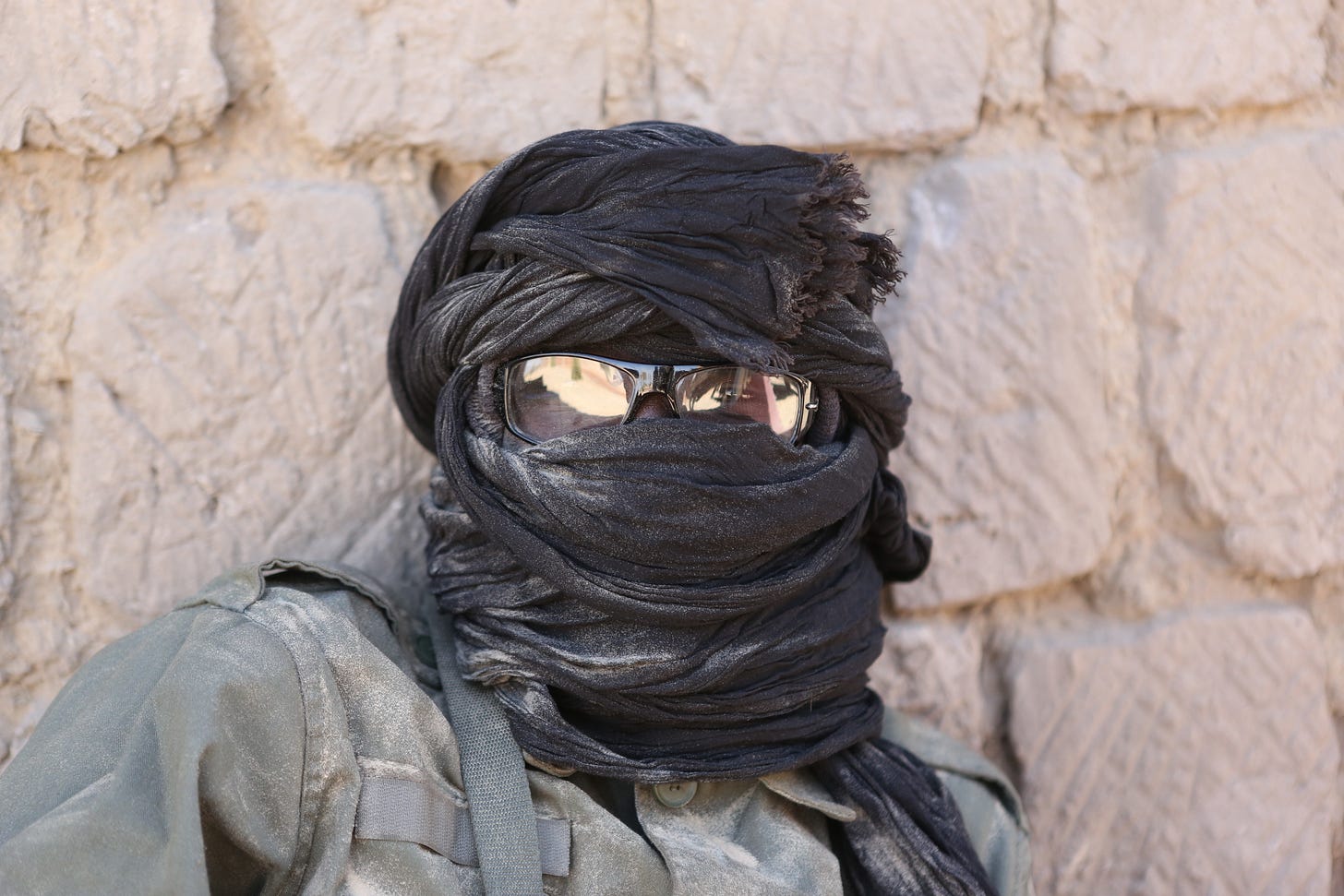Dear Readers,
Welcome to 14 North's Sahel Dispatch. This newsletter looks at jihadist activity and related security developments in Western Mali—Kayes, Koulikoro, Segou, Sikasso, Timbuktu, and Taoudenni regions—during October. We focus on Western Mali because it's home to rich mineral deposits and several industrial mines, which generate the bulk of Mali's revenue. It also borders Senegal, Guinea, Mauritania, and Côte d'Ivoire, which have population centers and extensive commerce, business, and investment.
In October 2023, jihadist activity increased in Segou region, while activity remained the same in Kayes region. Jihadist activity decreased in Koulikoro, Sikasso, and Taoudenni/Timbuktu regions. Overall, October was one of the most violent months in Mali so far this year.
The United Nations Multidimensional Integrated Stabilization Mission in Mali (MINUSMA) withdrew from three bases in northern Mali—Tessalit on 22 October, Aguelhoc on 23 October, and Kidal on 31 October.[1]
Jihadist attacks escalated in Niger throughout October. Multiple ambushes on the Nigerien army by Islamic State Sahel Province (ISSP) and Jama'a Nusrat ul-Islam wa al-Muslimin (JNIM) resulted in over 120 deaths. We expect insecurity to worsen because of the departure of French troops in October.
The threat to Mauritania has grown due to heightened insecurity along Mali's long borders with Mauritania and the fighting between the Malian Armed Forces and the non-jihadist CMA. The zone between the town of Timbuktu and the Mauritanian border is now a no-man's land.
This month, the Malian Armed Forces and Wagner Group conducted joint operations in central Mopti, central Segou, northern Koulikoro, Gao, Menaka, and Timbuktu regions. Wagner remained actively engaged in Mali throughout October, and we do not expect their activity to decrease.
The Israel-Hamas war is unlikely to have any direct implications for Mali. However, it may cause a spike in energy and fertilizer prices, which could be devastating for West Africa, especially Burkina Faso, Mali, and Niger. The crisis may also accelerate the growth of poverty in Mali, making economic conditions unsupportable for a large portion of the population and potentially destabilizing the country or undermining support for its government.
Our main takeaway from October is that the security situation in Mali is continuing to deteriorate quickly. Developments throughout the country and the spread of jihadist incidents into Niger reinforce our concern regarding longer-term regional threats, including the Littoral states, Guinea, Senegal, and Mauritania.
14 North helps you succeed in Sub-Saharan Africa's emerging and frontier marketspaces by delivering insights that increase opportunity and minimize risk. To learn more, please get in touch with us at info@14nstrategies.com or www.14nstrategies.com.
[1] https://peacekeeping.un.org/en/minusma-closes-its-camp-kidal-marking-end-of-its-presence-region#:~:text=Bamako%2C%20October%2031%2C%202023%20%2D,the%20way%2C%20causing%20material%20damage.





